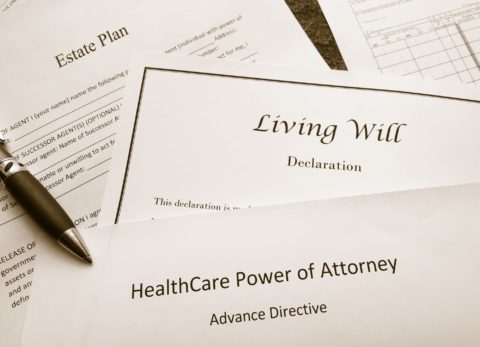The difference between a living will, Do-Not-Resuscitate (“DNR”), and Health Care Power of Attorney (“HCPOA”) is a common estate planning question, and the distinctions are subtle but important.
Living Will
Living wills are written instructions detailing an individual’s preferences for medical care if they are no longer capable of making their own medical decisions. It can be used to express a person’s desires for a range of circumstances, but it is most commonly used to declare under what circumstances life-sustaining measures should be terminated. For example, our firm’s Living Will allows you to state something to this effect: if I am terminal or in a permanent vegetative state or irreversible coma, I wish to die naturally, without the use of machines, except to the extent that they alleviate my pain and provide me with comfort care.
DNR
DNR orders are a general medical order, typically written by an individual instructing health care providers not to provide any resuscitation measures, which may include cardiopulmonary resuscitation (“CPR”), cardiac compressions, defibrillation, and/or artificial ventilation. You can establish a DNR, in addition to your living will, by telling your doctor you do not wish to be resuscitated if your heart or breathing has stopped, and your doctor can then put these instructions into your medical records. Your doctor may also provide you with the DNR on a bright orange piece of paper so you can keep it your home (often on your refrigerator) to notify emergency medical providers of your instructions to withhold resuscitation efforts.
HCPOA
A health care and mental health power of attorney (“HCPOA”) is a legal document that allows you to designate another person, (aka an “agent”), to make your medical decisions on your behalf in the event you are unable to make them yourself. The HCPOA is broader than a living will since a HCPOA applies to health care decisions generally, whereas a living will is limited to the circumstances defined in the document, such as if you are in a vegetative state or irreversible coma.
A HCPOA and living will may be combined into a single document or they may be separate documents that reference one another. If you complete a living will and HCPOA at Braun Cathie Kruzel (BCK), the HCPOA and living will are typically separate documents with the HCPOA referencing your living will. Specifically, our HCPOA permits you to decide if the language of your living will shall be “binding” or serve as “mere guidelines” for your HCPOA agent. For many, this is a tough decision. If you prefer letting your trusted agent have flexibility in how they interpret and carry out your living will directives, you may want the living will to serve as mere guidelines for your agent. However, if you would like to remove decision making from the equation in order to alleviate unnecessary suffering and debate, having a living will that is binding might be your preference.
Conclusion
By leaving your medical preferences in a living will, it can direct that you receive the medical outcome of your choosing and relieve caregivers and loved ones of the burdens involved with attempting to speculate what you would do under the circumstance. This direction will help to alleviate the unnecessary suffering that is typically involved when someone is called upon to make tough medical decisions for a loved one.
Designating an HCPOA agent to make medical decisions on your behalf if you are no longer capable allows you to select a person, whom you trust, and provide them with the authority to represent you during your time of need, including following the living will declaration.

